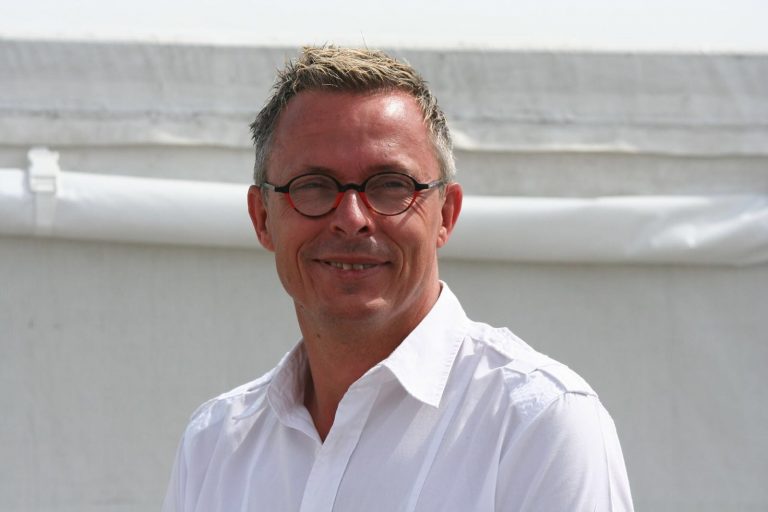
Looking for a Motorsports Dream Job?
If you are a Motorsports fan looking for a way to land your dream job, then my interview with Andries Moedt will give you some guidance.
Andries Moedt is the Founder of RaceConsults.com, a leading global professional recruiting group in Motorsport. Based out of the Netherlands, Andries is an International Recruitment Consult and provides recruitment services in the Automotive, Motorsport, Telecom, Aerospace & Defense sectors. RaceConsults.com has a reputation for integrity, excellence and relentless energy in finding challenging career opportunities for professionals in Motorsport. They work for teams and companies in F1, GP2, GP3, American/European/Asian Le Mans series, IA-WEC, NASCAR-Series, V8 Supercars, IMSA, WTCC, Indycar-Series, FIA F3-Championschip, MotoGP, World Superbike, Dakar, FIA-WRC, DTM, GT3-Series, Blancpain-Series, Porsche-Supercup, WSR, Drag Racing, Formula-E and more.
An interview with Andries Moedt of RaceConsults.com by Mike Coraluzzi.
Mike: Hello Andries!
Andries: Hello Mike.
Mike: Ok, let’s get started with this very special interview titled “What Recruiters Really Want to See to Help You Land Your Dream Motorsports Job“. So Andries, could you give me an introduction on how you started out on your motorsports journey?
Andries: Yeah, I will. As a little kid, I went with my father to the tracks and the fire is actually from him. I think this doesn’t go anyway anyhow, but that’s maybe the nicest thing about this.
We started this, or actually, I started this business because a few years ago, I recruited a friend of mine, an IT professional like myself, into motorsports. I knew a team at that time, a friend of mine was working there and wow, I introduced him and he got a job there. So he’s very happy and part of me thought maybe I should do something with that.
Mike: So you recruit in all different types of jobs and positions and that leads right into my second question. Can you give a few examples of the types of jobs that are available that you are working with or placing?
Andries: Normally, a lot of people think that only technicians who work on a team will normally, that you should expect that they should switch jobs, but it’s more than that. It’s more than that I expected actually, because not only technicians, but also sales marketing people, people who lead projects, and not only in the race teams themselves but also in the factory and even companies related to motorsports and this is, of course, a big market.
Mike: That’s good. We’re going to get onto that one a little more later, a lot deeper. So, regarding motorsports in general – can you speak upon how competitive it is to get into motorsports for a job?
Andries: Yeah, it’s very competitive because a lot of people watch TV, of course, and they think, “Oh, I want to work there,” but in real life, it’s a lot of politics out there and it’s very, very difficult to get into a team. And we’re not talking about only F1™, but also, in other private teams. People really try to do the best. I’ve spoken to candidates who send a CV and email to almost every kind of company related in motorsport or teams or whatever but never had a job.
I think the main thing is if you want to work in this area, then you must be introduced by a company or a recruitment company like we are ourselves. I think this is the advantage of this work we do. We get to know, of course, a lot of people all around the world in this sport and just by doing your work 100%, maybe 200% right and the trust that you must earn from teams when you deliver good people, that’s the only reason that you will survive.
I mean, if you have people who want to work in motorsports, which obviously, if they don’t have the qualities that are actually needed, you cannot place them into teams because then it’s one time and the team like that will never call you again, so this is fairly important. And not only the technical part, I mean, the technical part is one, but you must communicate also in the team because it’s very high demanding and fairly short notice. In motorsports, you’ll have a problem today and it should be solved yesterday, so it’s a very different world.
Mike: All right. So you did touch on technical criteria; so can you expand, what are the types of technical criteria that teams specifically are looking for? What do you think?
Andries: The last few years, aerodynamics is very important. I mean, not only IT-related people but also people who know a lot about aerodynamics because they make and test, of course, a lot of materials in the factory and later on the track during a race weekend or during some testing days.
Mike: So Andries, can you discuss the advantages of the education and personal characteristics you think will help motorsport job candidates be successful?
Andries: Yeah, absolutely. Like I said, it’s obvious that technically skilled people know a lot about technic, but that’s only part of the job into, for example, a race team. You have to be able to communicate on a very high level because when you find the problem, then you must also tell other people about this and convince them that maybe you have the solution. So it’s not only technical, it’s also a lot about communication and this is, I think, in high demanding areas like F1™ and teams, it’s very, very important. So, communication, leadership skills and the ability to get things done. These are qualities we look for.
Mike: And problem-solving.
Andries: Yeah, absolutely.
Mike: And the ability to work under pressure. So you’ve done this for a while, can you provide readers with a couple of success stories of candidates landing a job? So, how did it play out? How did they contact you or what happened?
Andries: One of the success stories, for example, I can’t give you a name or team or whatever, but a man contacted me on LinkedIn, saw what I did and he contacted me. He was asking me, “Hey, is it possible to get introduced somewhere? Because I’m looking for a job in a team.” So this happens and we introduced him into two teams and at this moment, he’s working for, I think, five-and-a-half months in a very nice team which is in the coming weekends and he’s very, very happy. He didn’t expect it, and I must say, well I didn’t actually first because when I saw his CV, I didn’t know exactly what to think about it because I got a lot of CVs from students and people all around the world who want to work in this area, but yeah, he had really good skills. He spoke with the people on the team and well, they could get along fairly well, so yeah, he has a job.
So it can go fairly quickly, and on the other hand, also sometimes very, very difficult with also good skilled people to find a job. I mean, that’s the other side of the story, sometimes it’s a little bit of luck and yeah.
Mike: Well, and it all has to happen through you, really. That’s the best avenue. So since you’re talking about success stories and you’re on the inside, can you give us a couple tips that will help candidates that they may not have ordinarily known? Like maybe what are positions that teams are looking for?
Andries: Well, on the internet, there are a few and sometimes more jobs listed, but when you get to know the teams and when you hear really what they want, they ask for other jobs like track managers and marketing people and a lot of those jobs aren’t listed on the internet because this is for a little bit of not embarrassment, but they don’t want to expose their needs on the internet, so this is like we said, most of the time under the radar. So this information will come by us, but we also do not put this on our internet site or somewhere else with the question for what we are looking for in marketing for certain teams.
These kinds of jobs, and most of the time marketing-related sales, yeah, it’s very difficult to get into because it’s not on the internet most of the time and you have to get introduced by people like us to find such a job. So these are a lot of opportunities and, of course, specialists in their own area of expertise, those people are almost never on the internet. Candidates need to keep in touch with us and talk to us. We can even advise them on how to change or tweak their CVs to make it more appealing to the Hiring Managers. This is very important.
Mike: That’s interesting and that ties right into my next question about entry points. You mentioned that a little bit earlier, it could be somebody taking the job in order to position themselves to get another job or it could be like a parallel industry; can you give us like types of jobs and maybe examples of entry points into the sport?
Andries: Of course. When people, for example, worked for a tire manufacturer before but with the knowledge and experience of the product, they can use that information and those skills, for example, a team or related company into the sport. I mean, when you work for Michelin for 10 years on a reasonably high level, not only technical, but also sales marketing related, that sometimes is very handy to have those people into your team because they have a lot of information about the product, about the behavior and maybe they can use that knowledge that they have.
Also, for IT people, of course, I mean when you’re a good IT guy and you know a lot about the structure, about how things are building up in motorsports, it ’s not any different. Maybe the language that they speak or the language that they program things in, but in general, it doesn’t matter a lot, especially in IT environments. It’s about telemetrics, it’s about data and yeah, that’s quite similar to all companies, not only in motorsport but also, in other areas. Maybe other parts suppliers or engineering firms or say you can operate a CNC machine. These are all related skills. The candidates need to think about who supplies parts to NASCAR or Indy or F1, etc. You can get a job with those suppliers and then get a dream job easier because you’ve been closer to the sport.
Mike: It is, yes, about getting projects done on time, under pressure, working in strategic entry point parts or service supplier business that are close to the sport – I get it.
Andries: Yeah.
Mike: I’ve got a couple more questions. I’m getting close to the end.
All right, so what areas or maybe new technologies do you think students or newer folks getting into the sports should pay attention that you see a potential in the future for?
Andries: Well, what you’ve seen for the last few years is that composites are very not new anymore in this sport. People who know about certain composites, these are fairly interesting people for teams because teams are looking every time to new materials, new stuff, and also new ways to make certain
kinds of things on the car, but those people are, at this moment, yeah, a lot of opportunities for the near future. A lot of students are having an education about composites.
I think when you look at 10, 15 years ago, it’s a very new industry and all the new materials, all the carbon and all those related composites are, at this moment, very important for students to have that information to go into a way or study in composites or whatever.
Mike: That’s interesting. I’ve seen a few recent papers published about composites and all kinds of new materials because I guess lighter and strong is better than heavy and strong on a racecar.
Andries: Yeah, absolutely.
Mike: So, yeah. That’s good info.
Andries: Yep.
Mike: That ties right into materials, sciences, engineering and more. All right, so I’ll wrap it up – if we can condense it all down, what do you think is the number one or a couple of traits or characteristics that you think will contribute to a student or someone in motorsports future career success? Could you give us a couple characteristics you’ve seen that lead to success?
Andries: Yeah. It’s very strange, I had a guy into F1™ and he worked for a race team actually for a few years, and when he came into the team, he didn’t even know who a driver was. So the interest of a student is not only about the sport itself, he must also be interested in technology, he must be very driven, he or she must want to learn new things and he must be very flexible. This is, I think, one of the important things, you must adapt to new technology and work with all that technology together into one team, for example.
In one team, there are so many different people but so much knowledge of different things and the art is for a lot of people, like a coach, to let them work together as a real team and this sometimes is fairly difficult because people say we got to work like this, and people from the tires are wanting other things.
So sometimes it’s a compromise, but on the other hand, sometimes also, the strongest win and then the other one must have the ability and the skills to work on the problem that there is at that moment and he must solve it, of course, in a very short notice. So “flexibility”, “determination”, “passion”, the ability to “get things done under pressure” and “persistence”. Sometimes you don’t get what you want immediately. Be flexible and keep trying – you can get a great job if you are persistent, have the skills and are focused and have a career plan. We can help with these things.
Mike: That’s good. Do you have anything else you want to add?
Andries: No. I think important is for, and that’s what I’m telling a lot of people, when you want to work in motorsports, the guy behind the wheel is making a lot of money, but people in the garage and in the factory are normal paid people, and especially when you’re on a team, it’s very high demanding,
sometimes 24 hours a day. You’ve got to want that and it’s nice, of course, on your feet when you’re working on one team or whatever, but it’s not for the money that you must work in that world.
I think it’s important that you go for the experience; it can be great, like nothing else. When it is your passion it can be very rewarding.
Mike: Well, that’s good. Thanks. And I want to wrap it up by saying so if people want to contact you, can you tell us a little bit about the services that you do and then at the end, how to contact you?
Andries: Yeah, okay. We have a motorsports recruitment company. We recruit people into motorsports and not only technicians but also, all kinds of people. We have our own website, www.RaceConsults.com and people can contact us or me by emailing us on one of the mail addresses into the website. And on our websites are a few jobs listed, but the majority is not listed on the website, it’s on paper here or with my colleagues.
We have a few consultants work all over the world, people in Europe, in the U.S., in Sydney at the moment, so we’re represented actually in a lot of series. So if people want to know things about this sport or whatever, please let them contact me and we can have a conversation on Skype or by mail just to inform them what we can do for them.
This is for the candidates and for the companies, we can work as a human resource company also, because it doesn’t happen a lot, but it happens that people don’t want their own human resource and then we can do actually, all these kind of services for the company or team. Contact us and ask questions; we can help in more ways than you might think, including education, resume and C.V. writing and more.
Mike: That’s good. Thanks Andries!
Andries: Thanks Mike!



